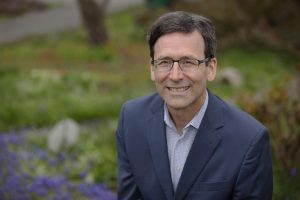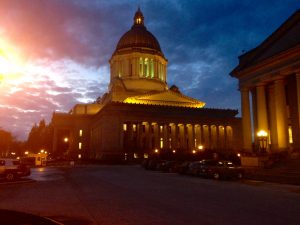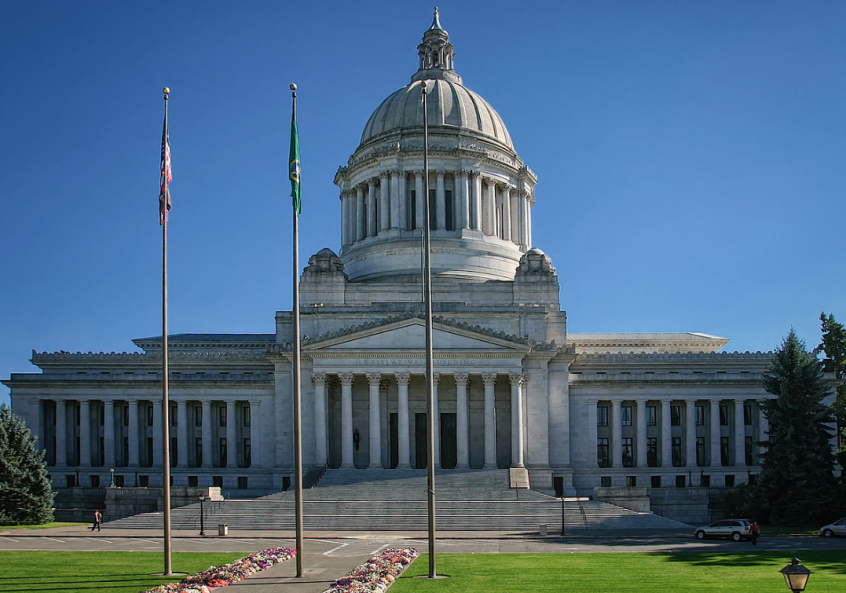The 2025 Washington State Legislature adjourned on time on Sunday, April 28th – no small feat given the magnitude of challenges lawmakers faced during the 105-day legislative session. This year marked the first session since the Great Recession where the Legislature was forced to reckon with a multibillion-dollar budget shortfall – an estimated $15 billion gap – that required difficult conversations around both spending cuts and new revenue sources.

Gov. Bob Ferguson
Compounding the fiscal pressures was a dramatic turnover in leadership and legislators. This session began with more than two dozen newly elected lawmakers swearing in, along with a new governor, Bob Ferguson,who brought in a fresh slate of agency directors. The new Commissioner of Public Lands, Dave Upthegrove, also began his term, adding to the sense of transition in Olympia.
Despite the complex political and fiscal backdrop, forestry stakeholders saw several meaningful wins emerged from the session in the form of good legislation passed, some legislation made better, and a couple misguided proposals stopped in their tracks.

Commissioner of Public Lands Dave Upthegrove
Bills that passed:
HB 1389 – Stumpage value reporting extension. Signed into law by Gov. Ferguson, this bill extends by four years the sunset date on stumpage value reporting. This continued agreement with the Department of Revenue ensures tax calculations are based on real world data – a vital tool for fair and transparent tax policy for the timber industry.
SB 5444 – The Legislature passed a bill authorizing a specialty license plate recognizing Washington’s working forests after years of effort. Proceeds will go to the Washington Tree Farm Program, which supports small forest landowners. Notably, this bill also halts new specialty plate proposals until 2029. However, the existing law that requires 3,500 signatures for specialty license sponsorship does not represent a change.
HB 2049 – Property tax cap increase. Originally aimed at raising the cap on local property tax increases, public outcry forced lawmakers to remove this component entirely.
HB 1522 – Wildfire mitigation planning. Language was added to clarify that required mitigation plans are for “planning only” and do not establish liability or shift burdens of proof. While the language does not go as far as hoped, it now represents one of the strongest liability protections among Western states for utilities involved in wildfire planning.
HB 2081 – B&O tax surcharge. The forestry industry’s preferential rate was protected in this bill that introduced a 0.5% surcharge on Washington taxable income over $250 million. An amendment was passed to exempt forest products companies from the new surcharge.
SB 5284 – Recycling/extending producer responsibility. Although the bill imposes new requirements on producers, WFPA successfully secured an exemption for bulk construction packaging, ensuring the vital forestry and building materials were not swept into the mandate.
SB 5794 – Eliminate obsolete tax preferences. While the original bill included removal of important tax preferences related to stevedoring and public utility taxes – which are crucial to exporters – coalition advocacy efforts led to the removal from the bill’s final version.

Capitol dome at sunset.
Bills that did not advance:
SB 5360 – Environmental crimes. The most extreme environmental bill of the session, it would have criminalized numerous regulatory violations as felonies. It failed to advance in the House.
SB 5466 – Transmission corridors and eminent domain. This bill would have created a new state entity with eminent domain powers to site electric transmission corridors. Its failure buys more time to refine policy and advocate for protections for commercial timberlands.
Though the Legislature has adjourned, Gov. Ferguson still holds significant power over the outcome of the legislative session. He may:
- Sign the entire budget into law.
- Use his line-item veto authority to cut specific expenditures or policies.
- Or, in an unlikely move, veto the entire budget and call lawmakers back into session.
The Governor has until May 20 to act. Once the budget is finalized, we’ll share a follow-up blog focused on how the tax and spending decisions affect private forest landowners.
Despite the budget shortfall and a changing political landscape, this session delivered some clear wins for Washington’s working forests. Key bills were passed, damaging proposals were improved or defeated, and forestry maintained its relevance in legislative discussions. In a year with much uncertainty, this outcome is worth recognizing – and building upon in future legislative sessions.
